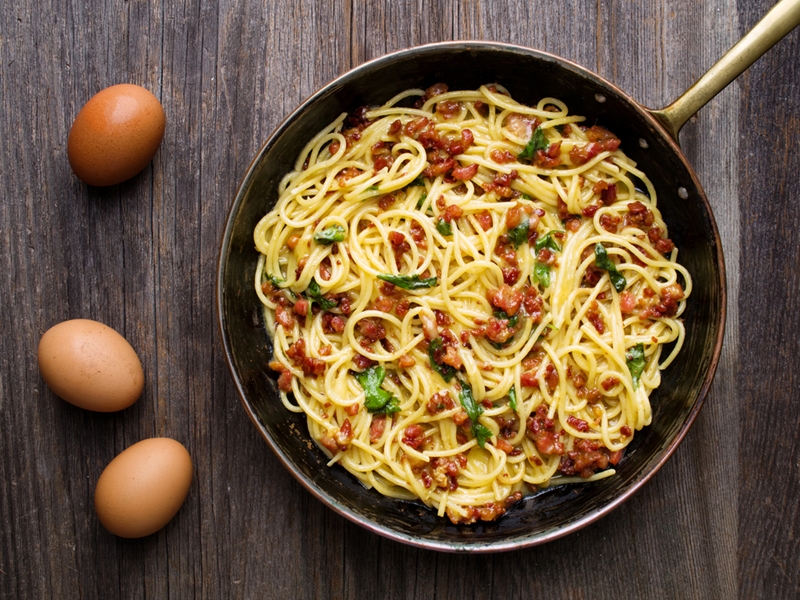The GMS Queen City Marathon event weekend is Sept. 8-10, and as it fast approaches thousands of runners are entering the home stretch of their training regimens.
Read on to learn how to best prepare for race day - and if you're not yet registered for the GMS Queen City Marathon, sign up here.
What to do the week before the marathon
The week leading up to marathon day should include a heavily "tapered" training schedule - you don't want to be training as hard as you have been the past several months. Reducing your degree of physical activity during this week helps give your body the chance to recover and prepare for optimal performance during the marathon. As for how much to train during this last week, Canadian Running magazine advises doing two to four very easy runs and taking the day or two before the race completely off.
 Carb-loading the final week of training to boost your glycogen stores.
Carb-loading the final week of training to boost your glycogen stores.
Another important consideration during this time is planning to carb-load. By filling up on foods rich in carbohydrates before the race, you can support greater endurance on race day.
As Nick Ambatzis, a general practitioner specializing in sports and exercise medicine explained in an article for natural foods company Neat, the point of carb-loading is to store up as much glycogen in the body as possible.
Glycogen, which comes from carbs, is your body's go-to source of energy, and is what it will first turn to in the beginning stages of running the marathon.
Ambatzis recommends having carbs make up 60-70 percent of the composition of your meals in the last week of your training, and especially during the last three days before the marathon.
In this final week, you should also be getting a lot of sleep, managing stress levels and staying hydrated. Self-care can help you set yourself up for success, both mentally and physically.
What to do the night before the marathon
It's common for runners to feel nervous or anxious the night before marathon day, but it's important to stay grounded and get yourself in the right headspace.
A great way to do this is to get organized. Lay out everything you need for the race, including your clothing, water bottle(s), shoes, phone, earbuds and other items. It it helps, make a list of what you need to have with you so you don't forget any vital items.
A top tip for preparing for your race: Don't wear brand-new clothing, gear or shoes that you haven't already worn several times. It may be tempting to sport flashy new leggings you bought for the special occasion or some new high-tech gear you just scooped up, but the last thing you want on race day is to be dealing with chafing, blisters or an app that just won't work.
"Don't wear brand-new clothing, gear or shoes that you haven't already worn several times."
Also make sure you're familiar with not only the marathon starting point and route, but how you'll get to and from the event and the locations where any family or friends will connect with you - this saves stress in the morning so you can keep your focus on doing your best.
Head to bed early to get a good night's sleep so you're rested and rejuvenated for race day.
What to do morning of the marathon
The morning of the marathon is here, and you're raring to go. First, what to eat - don't carb-load the morning of your marathon. Instead, eat a light breakfast that will help you fuel up. Everyone has their preference for the perfect marathon-morning meal, however, the key thing is that you don't want to eat anything you're unfamiliar with to avoid the risk that it'll make you sick. So play it safe with your breakfast!
There are also many different warm-up methods, but overall you don't want to tire yourself out with a long jog the morning of the marathon. The Globe and Mail interviewed several different marathon runners to find out their habits, and most of them said they go for a very easy 10-15 minute jog the morning of the race followed by light stretching.
It's also time to look within and psychologically prepare for the race. Visualizing success, listening to music that gets you pumped and repeating a mantra are all great techniques to get in a good mindset for success and manage nerves. Here are a few ideas for mantras, as suggested by Canadian Running magazine:
- I've come so far. What's a few more?
- Be tall. Be light. Float forward.
- Finish strong.
Follow this guide for preparing for your marathon during the home stretch of training. You can do it!